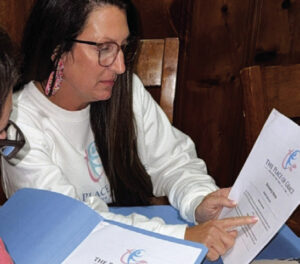Assessing the need for supplements
By By JUSTIN RODGERS / 4-H youth agent
July 28, 2002
Cattle require minerals to perform at their maximum capabilities.
A deficiency in one or more of these minerals can have major effects on the growth and reproduction of your herd. If the cattle are not performing well, if fertility is poor, a mineral deficiency might be at fault.
But, before you spend your money on various supplements, you should analyze the problem and try to determine its cause.
First, check feed quality, parasites and pasture conditions. Consult with a vet. Many mineral deficiencies have specific clinical symptoms, which may lead to diagnosis and treatment.
Further investigation may be necessary and blood, feed and soil analysis may be required. Analysis sometimes shows marginal or low levels of some minerals but this does not mean there is a mineral deficiency. The best test: after you feed or administer the deficient mineral, is there a real and detectable response?
The most important major minerals that may be deficient are calcium, phosphorus, magnesium and sodium. There is unlikely to be a need to supplement major minerals when cattle are run on pastures. Cereal grains are low in calcium, while pulps, roots, and molasses are low in phosphorus and therefore, should be supplemented with a high phosphorus mineral mix.
The most common trace element deficiencies in cattle are copper, selenium, iodine and cobalt. Deficiencies can cause a range of problems that affect growth, disease resistance and reproduction.
Symptoms and effects of deficiencies in copper, iodine and selenium include stillbirths and deaths of young calves, and lowered immunity to diseases like scours, pneumonia and mastitis.
Normally grass and silage are reasonably well balanced for the major minerals but deficiencies of copper, iodine and selenium are common in hay. So, it is a good practice to give a dry cow mineral supplement to bred cows for the last six weeks of calving.
Pregnant cows do not need calcium, unlike lactating cows. Pre-calve minerals normally have little or no calcium and are high in magnesium.
Be sure your cattle are getting the proper minerals needed to reach their full potential, especially during reproduction periods.
For more information about cattle minerals, call the Lauderdale County Extension Office at 482-9764.













